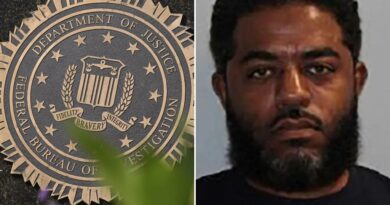USAID Had Its Flaws, but Trump Should Harness Effective ‘Soft Power’ Through Foreign Aid
By swiftly closing the US Agency for International Development (USAID) just two weeks after returning to Washington, President Trump is indicating his intent to introduce accountability and efficiency into foreign aid initiatives.
Ideally, USAID enhances US influence through soft power.
With an annual budget exceeding $40 billion, USAID’s funding represents just a small fraction of the nearly $900 billion allocated to the Department of Defense. This relatively modest investment aims to safeguard even larger sums in US hard power, offering a significant return on investment for American taxpayers.

In theory, the agency’s initiatives aimed at promoting democracy and preventing conflict are commendable. Developing nations reap benefits from advancements in agricultural technologies, immunizations, and educational initiatives.
However, as often occurs with social development programs, fringe political ideologies were imposed on USAID’s efforts by government staff and consultants.
The agency’s funding was tainted, with grants directed towards radical causes and organizations.
A notable example of USAID’s funding misallocation is evident in the Middle East.
In 2024, as the region was still grappling with the horrific acts committed by Hamas against Israel in the previous year, the United States markedly increased its financial commitment to projects in Gaza and the West Bank, disbursing over $200 million of taxpayer money in areas already plagued by terrorist rhetoric and activity.
The reputable Israeli research organization NGO Monitor highlighted that as the US government “dramatically increased funding” for these varied projects, it also “drastically decreased transparency.”
These grants were allocated to what USAID labeled “miscellaneous foreign awardees.” The obscure accounting processes concealed the fact that recipients included local partners who lauded the October 7 attacks.
A “flash appeal” initiated by the United Nations for aid in Gaza secured $114 million from Washington, benefiting local non-governmental organizations such as Al Awda, a “health and community center” with strong ties to the Marxist Popular Front for the Liberation of Palestine, which is recognized as a terrorist group, and the Palestinian Medical Relief Society, whose president referred to the massacres in Israel as “a glorious day for the Palestinian resistance and people.”
In fact, this troubling situation had begun before 2023.
Among the twenty Palestinian NGOs that obtained USAID funding in 2022 was the Community Development and Continuing Education Institute, whose chairman celebrated the escape of “six of our prisoner heroes” from an Israeli prison in 2021, all of whom were later recaptured.
One of these six was Zakaria Zubeidi, a former leader of the notorious Al-Aqsa Martyrs’ Brigades, known for several terrorist attacks in Israel, including the 2002 bombing of a polling location in Beit Shean that resulted in six fatalities.
Late last month, Zubeidi was among the Palestinian terrorists released by Israel in exchange for Israeli hostages taken to Gaza by Hamas on October 7.
None of this raised concerns for USAID’s governing body.
Instead of acting on the August 2024 warning from its own Office of Inspector General about the unsatisfactory due diligence standards, the agency propagated false Palestinian assertions that Israel was orchestrating a famine in Gaza, overlooking Israel’s initiatives to ensure that hundreds of humanitarian aid-laden trucks entered the coastal enclave daily from the Kerem Shalom crossing.
USAID has frequently echoed the narratives of terrorist factions and allocated American resources to “humanitarian” efforts that effectively served similar ends.
It’s hardly surprising that the agency’s reputation has suffered—something Trump views as irreparable.
The objective now must be to reconstruct USAID, allowing the valuable work the agency has accomplished in nations from Ukraine to the Democratic Republic of Congo to proceed untainted by associations with terror supporters and Islamist extremists in the Middle East.
Sen. Jim Risch (R-Ind.), the chair of the Senate Foreign Relations Committee, rightly advocates for incorporating USAID into the State Department, asserting that it would “reform and restructure the agency in a manner that better serves US national security interests.”
With Secretary of State Marco Rubio at the helm, the US must ensure that financial resources continue supporting projects and organizations committed to humanitarian development without jeopardizing our national interests, and without allowing antagonistic nations like Russia and China to take advantage of the temporary gap left by USAID’s closure.
Restoring the agency to its core mission will align with this administration’s aim of preventing wars and fostering peace.
Mark Dubowitz is chief executive of the Foundation for Defense of Democracies, where Ben Cohen is a senior analyst.



